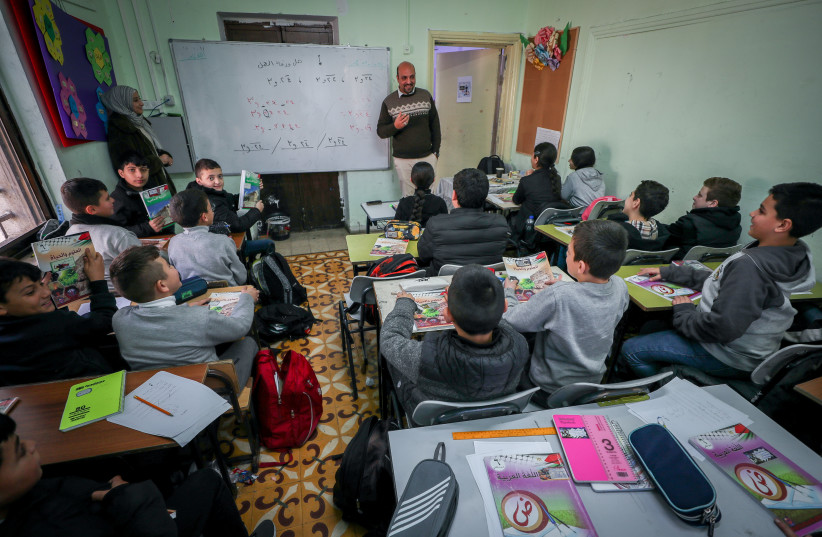Israel is failing to eliminate the education gaps between school students from high socio-economic backgrounds and low socio-economic backgrounds six years after a budget was designated to address the issue, according to a state comptroller report released on Tuesday.
In 2014, an equity budget was created specifically to allow for more designated hours to help socio-economically weaker students catch up in school to their peers from higher socio-economic backgrounds. The budget was created as a response to the fact that among OECD countries, Israel has some of the highest gaps in education by socio-economic background.
Between February and August of 2022, the state comptroller examined the extent to which the additional budget had helped to narrow the gap since 2014 and found that poor handling of the budget and the plan had mostly not helped.
Where is the Education Ministry failing?
Before the designated budget was formed, the budget allocated to weaker students was already higher than that of more fortunate classmates. Since receiving the extra designated budget, however, the allocated amount for weaker students has grown by just over NIS 1,500, a growth that the state comptroller deemed not enough to properly narrow gaps.

On a more positive note, the state comptroller found that the new budget had indeed led to an increase in hours designated to caring for weaker students, leading to somewhat of an improvement in the situation. The issue, however, was that this increase was higher in Jewish schools than in Arab schools, meaning that weaker students in Arab schools still aren't getting the aid they need.
Additionally, even among Jewish schools, the increase was found to be higher in secular schools than in religious schools, with ultra-Orthodox schools receiving the least.
Another issue preventing a productive improvement was that the Education Ministry did not set itself measurable goals to track its improvement and therefore was never aware of its exact progress and what aspects needed more attention. There were also never any reviews of the measures taken to reach the objective and how effective they were.
The managerial problems also expressed themselves in the schools' lack of transparency regarding their use of the budget. While the schools were legally required to create a public system that would track their use of the budget, such a thing was never created.
The budget issues also branched out into the schools' allocation of funds. While the funds are specifically meant for extra hours to aid weak students, schools were found to be using some of it to further the integration reform of special needs students into regular classrooms. This meant that the project to narrow the gaps was not being fully implemented.
Furthermore, wealthier regional councils were supplementing their budget with independent incomes that less wealthy regional councils couldn't afford, giving the weaker students in wealthier regional councils an advantage over students at the same level from poorer places.
Finally, the report found that the education level was sinking across all Hebrew-speaking schools, while the gaps were continuing to widen across Arabic-speaking schools. This conclusion was drawn based on Israeli students' performance on the Program for International Student Assessment test (PISA) which is conducted by OECD countries.

The test assesses international literacy among teens in the fields of reading, mathematics and science. In the 2018 test, the average Israeli student scored less on the test than the global average.
What does the state comptroller recommend?
The state comptroller noted that, based on the fact that the increase in designated aid hours for weaker students helped narrow the gaps slightly, better management of the project could bring a more significant change.
To that end, he recommended that the Education Ministry should conduct an organized assessment of how the implemented changes have helped and look at other nations' systems and formulate a proper multi-year plan to bring about real change.
In terms of using the allocated budget, the report recommended that the Education Ministry create a transparency system and designate the entire budget to the objective it was created for.
